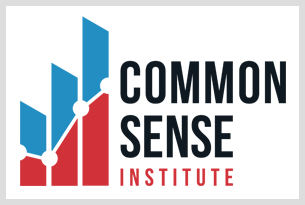FOR IMMEDIATE RELEASE
September 10, 2019
Contact: Cinamon Watson
303-949-7264
REMI Partnership study “Anticipating a State Health Care Option: Will Businesses Face Higher Costs or Will Quality & Access be Cut?” analyzes the cost of a health care state option
Denver, CO – A new study released by the REMI Partnership, “Anticipating a State Health Care Option: Will Businesses Face Higher Costs or Will Quality & Access be Cut?” examines the impact of a state option for health care.
During the 2019 legislative session, lawmakers passed and Governor Polis signed HB 19-1004. The measure directs the Colorado Department of Health Care Finance and Policy (CO-HCPF) and the Colorado Division of Insurance to develop a public option for health care. As a result, CO-HCPF and the Division of Insurance are pursuing the development of a state option, a new type of insurance plan that would significantly expand the role of state government within Colorado’s health care industry. To date, details of the plan remain unknown. However, the plan is very likely to either limit access to health care or increase costs for businesses by setting rate caps for providers.
“Improving access and quality of care are goals that everyone shares in the health care policy debate,” said Kristin Strohm, President and CEO of Common Sense Policy Roundtable. “It’s clear that a state option would ultimately cost Colorado. Someone has to pay the bill – either providers will cut jobs or Colorado businesses will face increased costs.”
In this report, the REMI Partnership explores the potential impacts of a state option to Colorado’s health care system and the broader economy including job cuts and decreased access to care.
“A state option has never been fully implemented at a state or national level before and, under the current timeline, legislation to create a state option in Colorado could be introduced and passed early next year,” said Mike Kopp, President and CEO of Colorado Concern. “Although well intentioned, a proposal of this magnitude deserves careful consideration. A public option will have far-reaching impacts and significant unintended consequences on our health care.”
According to the study, the potential impacts of the state option in Colorado indicate:
- Government price controls that are needed to facilitate below-market premiums offered by a state option likely do not cover the full costs of care, and therefore the reduced reimbursements to health care providers could range from $494 million up to $1.4 billion.
- The state option could cause a potential loss of 1,500 to 4,500 health care workers across Colorado, exacerbating the state’s existing shortage of primary care physicians, nurses, and other health care providers.
- If lost revenues from the state option are shifted to employer-provided insurance plans and other private sources, the state economy could lose between 2,900 and 8,320 jobs and $320 million to $919 million in total GDP, as a result of a more than 5% increase in the cost of health care for businesses.
- An 80% to 100% membership loss could occur in the state’s individual health insurance market as people drop private coverage in favor of the state option’s below-market premiums.
- A reduction of 2.7% to 8.3% could occur in the employer-provided insurance market.
Read the full study and key findings here.
###
About the REMI Partnership: Common Sense Policy Roundtable, Colorado Concern, Colorado Association of REALTORS®, Colorado Bankers Association, and Denver South Economic Development Partnership have partnered to develop independent, fact-based analysis that quantifies the broader economic impacts associated with policy changes. The partnership has provided Colorado lawmakers, policymakers, business leaders, and citizens with greater insight into the economic impact of public policy decisions that face the state and surrounding regions.

